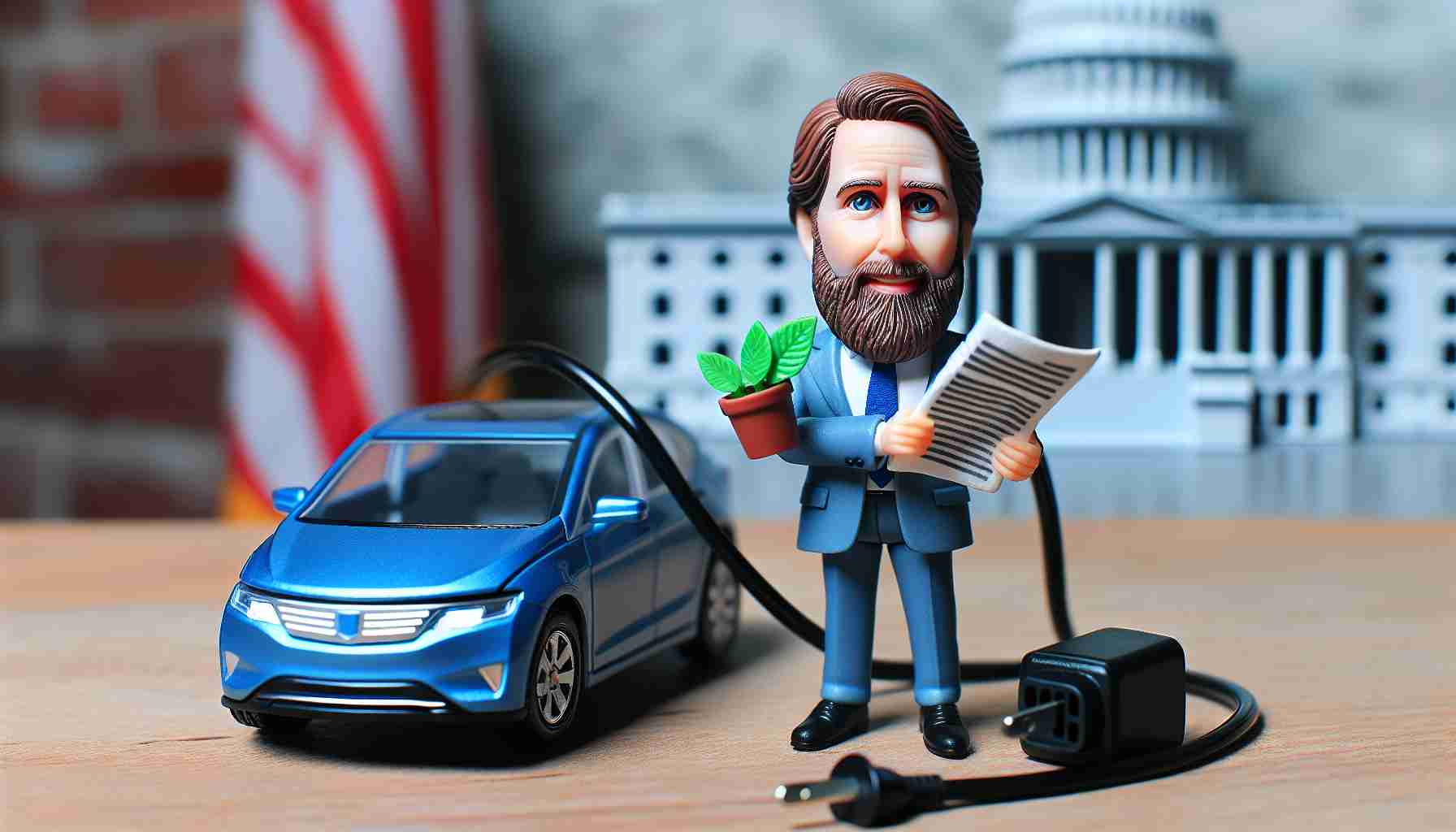- The Trump administration has suspended the National Electric Vehicle Infrastructure (NEVI) program, halting plans for new EV charging stations.
- This decision affects state deployment plans and rescinds previous guidance on the program.
- States with existing funding for projects will continue to receive reimbursements without disruption.
- Critics view this move as part of a broader strategy to undermine climate initiatives and EV adoption.
- This suspension raises concerns about the future of EV infrastructure and sustainability efforts in the U.S.
- Stay informed as developments unfold in the EV landscape amid these challenges.
In a stunning move, the Trump administration has put the brakes on a vital program aimed at expanding electric vehicle (EV) charging infrastructure across the United States. Just as the world moves towards cleaner energy solutions, the Federal Highway Administration (FHWA) has declared that state plans under the $5 billion National Electric Vehicle Infrastructure (NEVI) program will be suspended.
In an official communication to state transportation departments, the FHWA announced that it would no longer approve existing deployment plans for electric vehicle charging stations. This decision is seen as a significant setback for the EV landscape, which has been gaining momentum as consumers increasingly favor greener alternatives.
The message was clear: all previous guidance related to the NEVI program is now rescinded, meaning no new projects can initiate under this funding until new guidelines are established. Although this decision halts the rollout of future charging stations, states that have already secured funding for projects will not be impacted—reimbursements for current commitments will continue smoothly.
Critics argue that this suspension reflects a broader agenda to roll back climate-focused initiatives and undermine the adoption of electric vehicles. As the nation grapples with climate change and a shift towards sustainability, this turn of events raises questions about the future of EV infrastructure in the U.S.
With the situation evolving rapidly, keep an eye out for further updates—this story is just beginning! The key takeaway? The road to a cleaner, electric future faces unexpected hurdles.
Shocking Setback for Electric Vehicle Infrastructure: What Comes Next?
Overview of the NEVI Program Suspension
The $5 billion National Electric Vehicle Infrastructure (NEVI) program was designed to accelerate the deployment of EV charging stations across the United States. Recently, the Federal Highway Administration (FHWA) announced a halt to this essential initiative, which could have profound implications for the future of electric vehicles in the country. This decision has led to widespread concerns among environmental advocates, industry stakeholders, and the general public regarding the development of EV infrastructure when the demand for sustainability and greener alternatives is higher than ever.
Key New Information
Market Forecasts and Trends:
1. Despite the suspension of NEVI, the electric vehicle market is projected to grow significantly. According to recent forecasts, the global EV market is expected to reach $1.5 trillion by 2027, with a compound annual growth rate (CAGR) of over 25%.
2. According to a report from the International Energy Agency (IEA), the number of electric cars on the road worldwide is anticipated to surpass 145 million by 2030.
Sustainability Insights:
– Recent environmental studies highlight the importance of establishing EV infrastructure as a critical component in reducing carbon emissions. The International Council on Clean Transportation (ICCT) suggests that without adequate charging networks, the U.S. may struggle to meet its climate goals set forth in international agreements.
Innovative Solutions and Alternatives:
– Other states are exploring innovative charging solutions, such as solar-powered charging stations and partnerships with private companies. For instance, California is testing wireless EV charging technology that could revolutionize how electric vehicles are charged on the go.
Most Important Related Questions
1. What are the potential consequences of halting the NEVI program?
The suspension of the NEVI program may slow the adoption of electric vehicles by limiting the availability of charging stations. Without sufficient infrastructure, range anxiety among consumers may remain a significant barrier to EV purchases. Additionally, states may struggle to meet federal climate goals if they cannot deploy essential charging facilities.
2. What is the current state of EV adoption in the U.S.?
As of 2023, EV sales in the U.S. have increased, with approximately 7% of all new car sales being electric. Consumer interest in EVs remains strong, particularly as manufacturers expand their offerings and prices begin to decline. However, range and charging infrastructure continue to pose challenges.
3. How can states ensure future EV infrastructure developments?
States could seek alternative funding sources and collaborations with private entities for the installation of charging stations. Additionally, they might advocate for revised policies to support the growth of EV infrastructure, emphasizing the long-term economic and environmental benefits.
Final Thoughts
The recent suspension of the NEVI program presents genuine challenges to the drive for a sustainable and electric future. However, the increasing demand for electric vehicles continues, suggesting that innovation and alternative strategies could still pave the way for expanded EV infrastructure.
For more insights and updates on electric vehicles and sustainable initiatives, visit Energy.gov.














